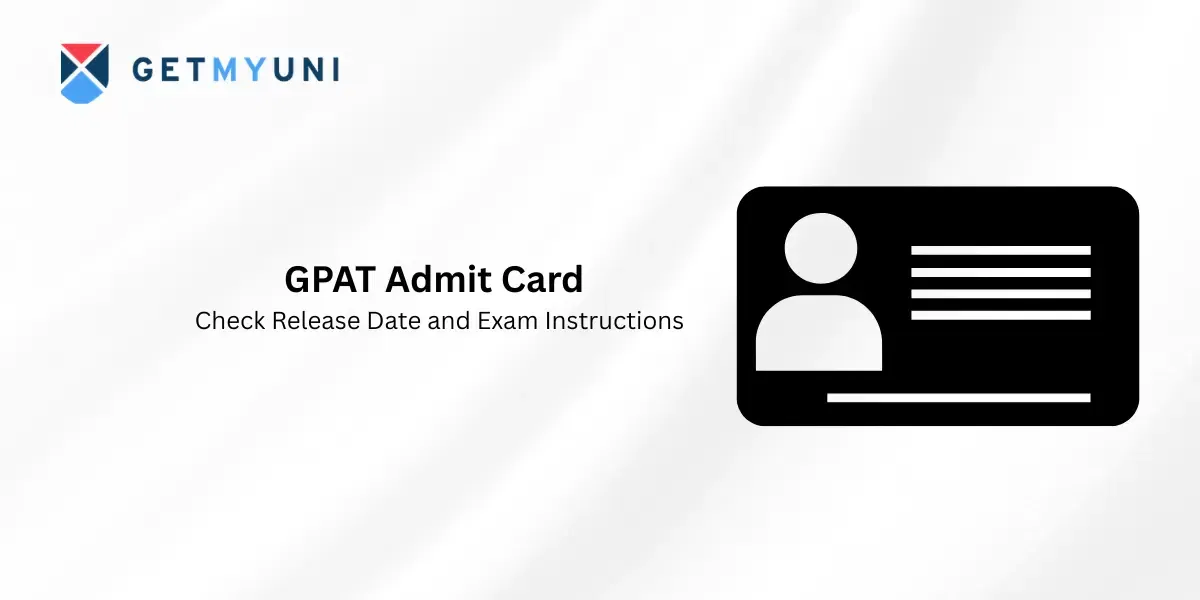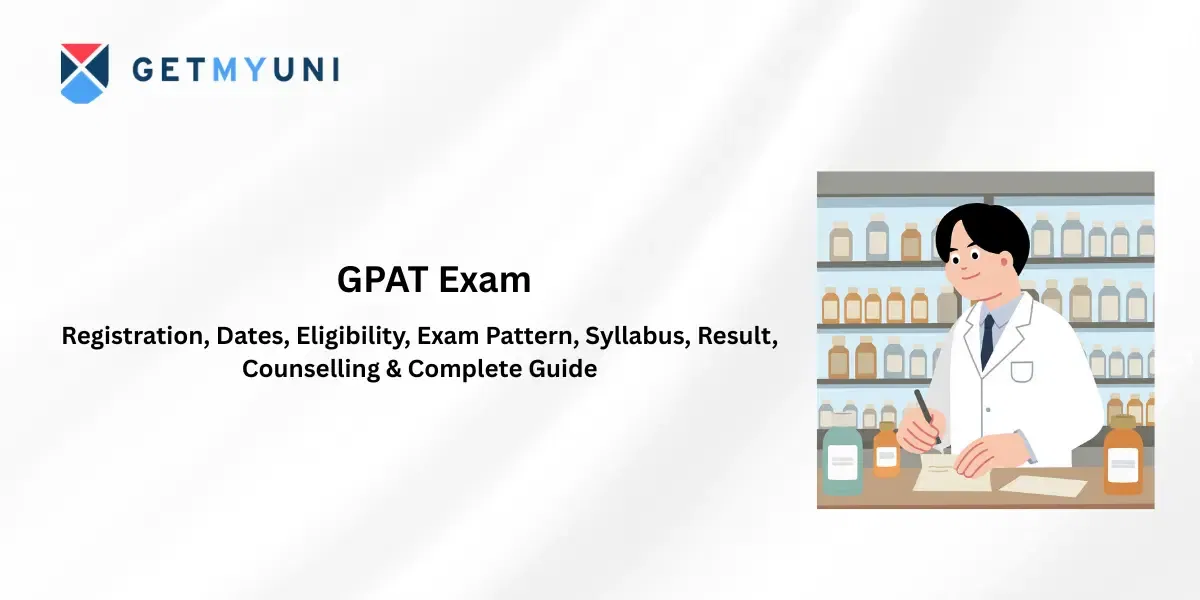Learn how to improve speed and accuracy for NEET 2025. Get easy tips to manage time, solve questions faster, and avoid common mistakes to score higher in the exam
Scoring high in NEET requires not just subject knowledge but also knowing how to improve speed and accuracy in NEET 2025. Time management is of high importance because you have to attempt 180 questions in 3 hours. To secure a score of 700+, it’s important to have fast problem-solving skills, minimal mistakes, and an optimized exam strategy.
The article explains to students how to improve speed and accuracy in NEET 2025 simultaneously to maximize their NEET score and improve their chances of securing a top medical college.
NEET 2025 Overview
Students aiming for medical studies can enter MBBS degrees and additional medical programs through the National Eligibility cum Entrance Test (NEET) 2025 in India. Every year, the National Testing Agency schedules NEET for lakhs of students seeking admission to medical programs. Students need to answer exam questions using traditional pen and paper.
The best way to know how to improve speed and accuracy in NEET 2025 is to first know all the exam basics, including topics, test format, and current information. The table below provides an overview of the NEET 2025 exam.
|
Particulars |
Details |
|
Mode of the examination |
Offline |
|
Duration of the examination |
Three hours |
|
Exam timing |
2 PM to 5 PM (as per Indian Standard Time) |
|
Type of questions |
Multiple Choice Questions (MCQs) |
|
Total number of Questions |
180 |
|
Total Marks |
720 |
|
Negative marking |
Yes |
|
Marking Scheme |
+4 for each correct answer -1 for each incorrect answer 0 for unattempted or extra-attempted questions |
|
Total sections in the question paper |
3 (45 questions for each subject) |
|
NEET Subjects |
Physics, Chemistry and Biology (Botany + Zoology) |
|
NEET Question Paper Mediums or Languages |
13 - English, Hindi, Urdu, Bengali, Assamese, Odia, Punjabi, Marathi, Gujarati, Kannada, Tamil, Telugu, Malayalam |
Also Check: 10 Time Management Tips & Techniques for Students
Effective Strategies to Improve Speed and Accuracy in NEET 2025
Students need to know strategies for how to improve speed and accuracy in NEET 2025. Students need to learn effective ways to solve multiple NEET questions fast enough to finish them all within 3 hours.
You must practice regularly and structure your approach to problems with attention to common mistakes. These approaches can help students succeed by doing NEET 2025 questions with speed and accuracy.
1. Master Time Management Techniques- Effective use of time determines success in the NEET exam. Devote specific amounts of study time to each subject based on your best and weakest topics. Allocate time at the end for revising the questions.
2. Develop a Strong Conceptual Foundation- Decoding basic concepts first leads to faster and better solutions during tests. Trying to memorize content alone will make you slow down and create errors when answering application questions. Study NCERT texts for better understanding of concepts.
3. Use the Right Problem-Solving Approach- Transform your approach to different kinds of questions by developing effective methods to solve them. For example, for direct formula-based questions, memorize and recall formulas quickly. For lengthy calculations, use shortcuts and approximation techniques.
4. Practice with a Timer- Use a stopwatch to monitor your time during mock tests when you work through previous year exam questions. Slowly work to cut your problem-solving time as you keep producing correct results. Use the Pomodoro method to focus better during studying time.
5. Improve Mental Calculation Skills- Physics and Chemistry need students to perform numerous mathematical calculations regularly. Instead, use your mind to perform basic math quickly rather than using scratch work for every answer. Teach yourself fast methods for finding square roots, cube and logarithms to do calculations without using long processes.
6. Solve mock tests and previous years’ exam papers- Doing tests in a timed exam setting builds stronger brain performance under time constraints. Review your test results to understand wrong answers and build strength where you need it.
7. Understand questions accurately- Develop more effective strategies to understand theoretical content quickly. Several Biology questions need fast reading and understanding. Learn to scan long questions swiftly as you need to find “except,” “not,” or “incorrect” which determine the actual problem.
8. Cross-Check Answers- End your test time with 10 to 15 minutes to check your responses. During your final review time, focus on math work and any parts of theory questions where you read the options wrongly.
Regularly applying these strategies will help to improve speed and accuracy NEET 2025 examination.
Relevant Topics Related to NEET Preparation:
Time Management Tips for NEET Exam
Why Mock Tests are Important for NEET 2025?
Tips for Solving NEET Physics, Chemistry, and Biology Questions
If students want to know how to improve speed and accuracy in NEET 2025, they should follow a specific strategy for each subject.
Every NEET subject needs its own particular study method to achieve maximum results.
Biology depends mostly on memorized theoretical knowledge, while Chemistry demands equal attention to both concepts and numerical problems, plus Physics needs strong problem-solving skills and formula knowledge.
The tips below explain how to solve NEET questions better in each study topic.
1. Physics
Physics contains both a deep understanding of concepts plus effective problem-solving strategies. Students find Physics the most difficult subject within NEET because of its many numerical questions. To excel in this subject:
- Learn the basic concept before learning the formulas for better memorization.
- Keep your list of formulas and shortcuts in a daily study session.
- Work through past NEET Physics exams since this subject uses familiar question types to boost your performance.
- Dedicate separate timeslots for each question type and step up your problem handling speed slowly.
2. Chemistry
Each NEET Chemistry section about Physical, Organic and Inorganic subjects calls for its unique study method.
- For Physical Chemistry solve daily math problems, use past year questions and study efficient calculation techniques.
- For Organic Chemistry, memorize reaction mechanisms and functional groups. Use flowcharts and reaction maps to see important subject principles better.
- To learn Inorganic Chemistry students need to study the NCERT content combined with the main periodic table features and inorganic chemical reactions. Regularly revise important reactions.
- Develop memory tools to remember reaction series, periodic table data and concepts more easily.
3. Biology
The study of Biology in NEET creates the greatest opportunity for high scores when students learn it methodically. Most Biology content in NEET questions directly comes from the NCERT textbooks.
- You can strengthen your knowledge through diagrams and flowcharts. Medical students should prepare diagrams with labels since examiners use this content type frequently in biology tests.
- The four chapters, Genetics, Ecology, Human Physiology and Plant Physiology demand complete focus because they account for many questions.
- Solve the Biology questions from past NEET Exams to see the exam pattern and frequently asked questions.
- Follow NCERT materials exclusively and use reference books for understanding purposes only. Several books about the same subject will make things harder to understand.
Following these methods for each subject will help you get better results when solving NEET questions paper.
Also Read: How to Revise Whole NEET Syllabus in Last 3 Days
How to Approach the NEET Exam for Maximum Score?
If you want to know how to improve speed and accuracy in NEET 2025, you need both a test-taking strategy and subject knowledge to score well. A structured preparation path will let you earn better scores through fewer errors. Follow these steps to achieve your maximum score on the NEET exam.
1. Start with Your Strongest Section- Work with the subject topic you have highest expertise. By starting with your best subject you will feel more confident and easily pick up easy points. Students usually start with Biology because it provides more high-score opportunities faster than Physics and Chemistry.
2. Use the Two-Pass Strategy- Begin by answering any simple questions you know very well. You will earn easy points faster by focusing on comfortable topics. Do the questions that are moderately hard and challenging after finishing the straightforward ones. Save tough questions for later and continue with other items when a problem requires too much time to solve.
3. Manage Your Time Efficiently- You need to answer 180 questions in 3 hours. You must allocate less than one minute for each question during the exam. Devote some time to revising marked questions before the exam ends.
4. Read Questions Carefully- Students regularly make mistakes due to their incorrect interpretation of the test questions. Underline the following common indicators to prevent errors: "except," "incorrect," or "true/false."
Also Read: Minimum Marks Required in NEET 2025 for MBBS in Government College
5. Apply the Elimination Method when answering MCQs- When you are uncertain about an MCQ answer, start by taking out the wrong options. This strategy raises your odds of picking the right answer from the choices.
6. Set a specific time on each question- Dedicate only a short timeframe to each question without wasting time. When you reach a point where you cannot answer a question within this timeframe, return to it if possible later. Staying focused on a single question can impact your final results in the test.
7. Stay Calm and Focused- Exams become easier to handle when you remain composed, as it enhances your test results. When you encounter hard parts of the exam breathe deeply while keeping your attention on the content and prevent yourself from panicking.
8. Revise Before Submitting- Check your answers once time permits and verify that you filled the OMR sheet correctly during the exam.
Using these methods will help you use your time wisely to achieve better results on your NEET test.
Also Read: NEET cut off marks for government colleges
Common Mistakes That Reduce Speed and Accuracy in NEET
Students who take the NEET exam often lose marks because of standard mistakes that damage their pace and decrease their scoring ability. Knowing and avoiding these problems will let you be more successful in your tests and raise your test results. Student performance in NEET suffers mainly from these common mistakes.
1. Stay too long on one problem- Students waste their time when they stay too long on one problem. You should avoid focusing your time on a single difficult question. NEET students need to handle 180 questions in only 3 hours, which means time management is essential.
When you exceed 60 to 90 seconds on a question mark, mark it for review, and continue working through the rest of the test.
2. Misreading the Question- Students typically lose points in NEET from bad question interpretation especially when they see words like "except," "incorrect," or "true/false." Study the text line by line to pick up the main points in the text.
3. Lack of Time Management- Students earn lower results when they fail to balance their study efforts evenly between the three subjects. Students dedicate most of their time to challenging Physics computations, leaving insufficient time for other parts. You need to develop a careful plan for how you use time.
4. Not Practicing with OMR Sheets- Students often mark incorrect choices because they make errors when they hurry at the end. Rephrase your skills with OMR sheets by practicing them regularly during test mock-ups.
Also Check: 10 Tips for Staying Focused and Productive as A Student
5. Guessing Blindly- Students who guess blindly in NEET will end up losing points because each wrong answer generates a -1 mark. Answer only the questions where you can definitely be confident.
6. Overconfidence in Easy Questions- Students answer the easy questions too quickly, which causes poor results. Students need to double-check their answers because many solutions appear clear but can lead to making a mistake.
7. Calculation Inaccuracy in Physics and Chemistry- Incorrect mathematical solutions in physics and chemistry can lead you to the wrong response. Double-check all mathematical steps and verify your solution results for precise answers.
8. Ignoring NCERT Books- Many students do not review their Biology and Chemistry content from the official curriculum of NCERT books. Students who neglect NCERT materials for Biology and Chemistry lose many marks in the exam.
9. Not Using the Elimination Method for MCQs- Rather than trying to remember the answer directly start by removing all wrong options in the choices. Easier answer finding leads to better results.
10. Not Reviewing Marked Questions- Students make mistakes every time they do not check their answers before submission. When available, you need to review marked questions to check the work you have done.
Also Read: Minimum Marks Required in NEET for MBBS in Private College










